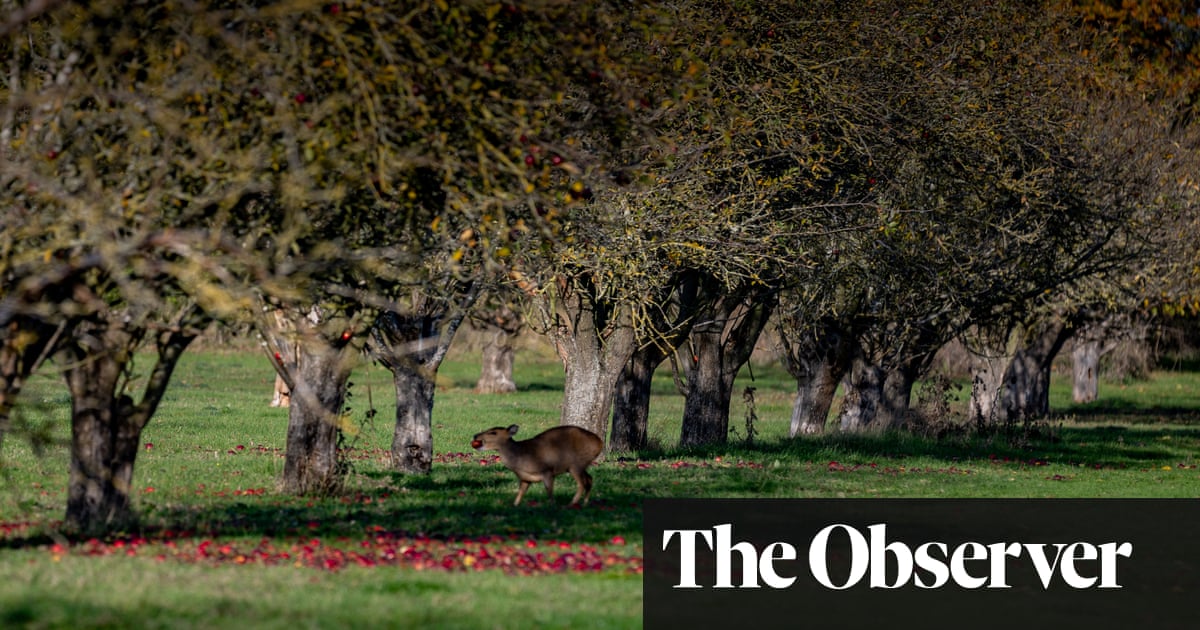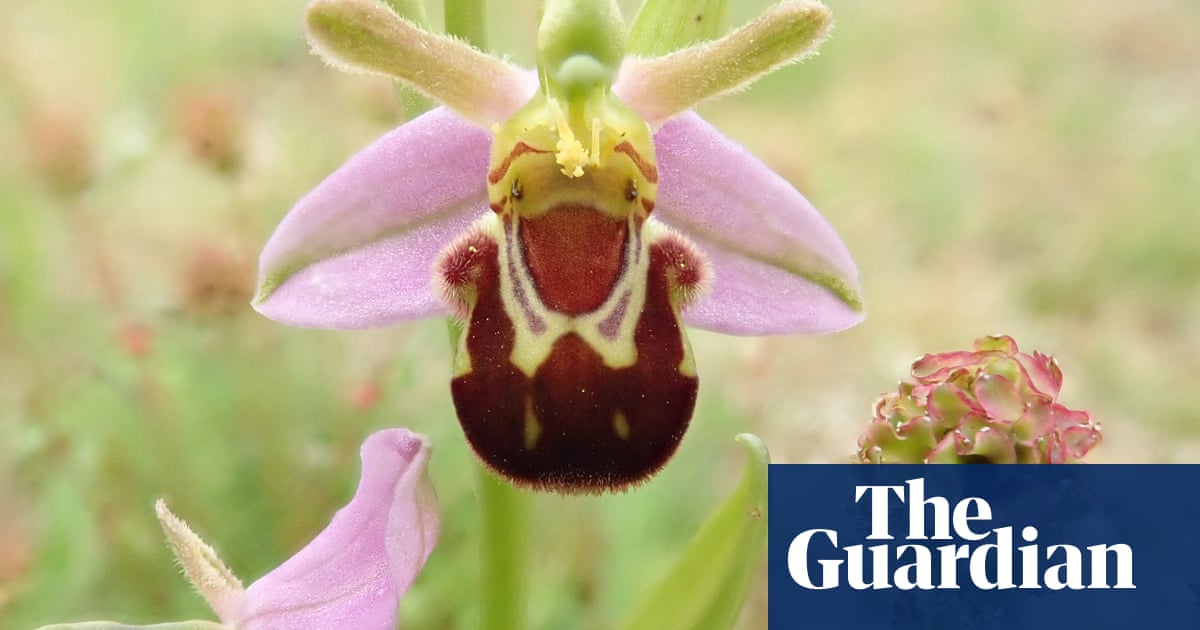
The Coton Orchard is the eighth largest traditional orchard left in the UK, its owner Anna Gazeley is proud to say. “Not because we’re huge but because 80% have gone since the 1900s,” she said. Commercial fruit trees are smaller and more productive, but this orchard is filled with wildlife, a legacy of Gazeley’s father, who bought the land three decades ago to save the trees from developers.
That may have been a temporary reprieve. The fate of the the trees and farmland west of Cambridge will be decided on Tuesday, when Cambridgeshire county council votes on a £160m scheme to include a bus bypass that would tear through the orchard.
“They’ll be voting to cut down 1,000 trees,” Gazeley said. The orchard, which is sustained financially by a garden centre, has 520 apple, pear and plum trees, and another 500 poplars, ash and oaks. “We have three pairs of foxes, four pairs of badgers, woodcock, three sorts of woodpeckers. There’s literally a partridge in a pear tree. It would be devastating to lose this.”
Gazeley is part of the Coton Busway Action Group and a coalition of campaigners hoping that the threatened destruction of the orchard, designated a habitat of principal importance in England, will provoke a similar public response to the fate of thousands of street trees in Sheffield, and 100 more that were felled in central Plymouth last week.
“We’re telling people: ‘you can’t save those, but these ones you can’.”
At least 6,000 new homes are being built which would be served by the proposed busway, a bus-only road running from Cambridge over the M11, through Coton village to Cambourne. It’s part of the Cambridge City Deal, a major expansion of the city and its surrounds announced in 2014 that is being implemented by the Greater Cambridge Partnership (GCP) involving three local authorities and the University of Cambridge.
Building more homes creates a need for better transport, so the GCP is proposing four busways around the city – Coton is the first – cycling and walking routes and a congestion charge zone to deter drivers from the city centre. There is agreement of a need for better bus routes, but campaigners say that instead of a separate busway, the GCP could widen the existing road.
James Littlewood, chief executive of Cambridge Past, Present and Future, a local conservation charity, said: “If you built a bus lane adjacent to the road, that would have the same benefit at a fraction of the cost and environmental damage. Our frustration is that all we really want them to do is compare the scheme we’ve come up with. And they’ve never done that.
Our charity purchased farmland around there in the 1930s to protect that side of Cambridge from urban sprawl.”
Peter Blake, GCP transport director, said it had examined expanding the road. “There’s not the space,” he said. “On that section of road you have the American Cemetery and Madingley Wood, which is a site of special scientific interest and has the highest environmental designation in this area. The scheme needs to balance the environmental harms.” The GCP had conducted four consultations and its plans have been independently audited twice. The GCP’s process was found to be robust, he said.
Blake said about 1.6 hectares of the orchard would be affected. “And we’ll try to work with the landowners to reduce that further if we can.”
Tuesday’s vote will be finely balanced – the 60-seat county council is controlled by the Liberal Democrats with Labour support. with 30 councillors between them. The opposition is mostly Conservative with some independents.. “We think Labour and the Lib Dems are being whipped to vote for it,” Gazeley said. “We need every free vote we can get.”












